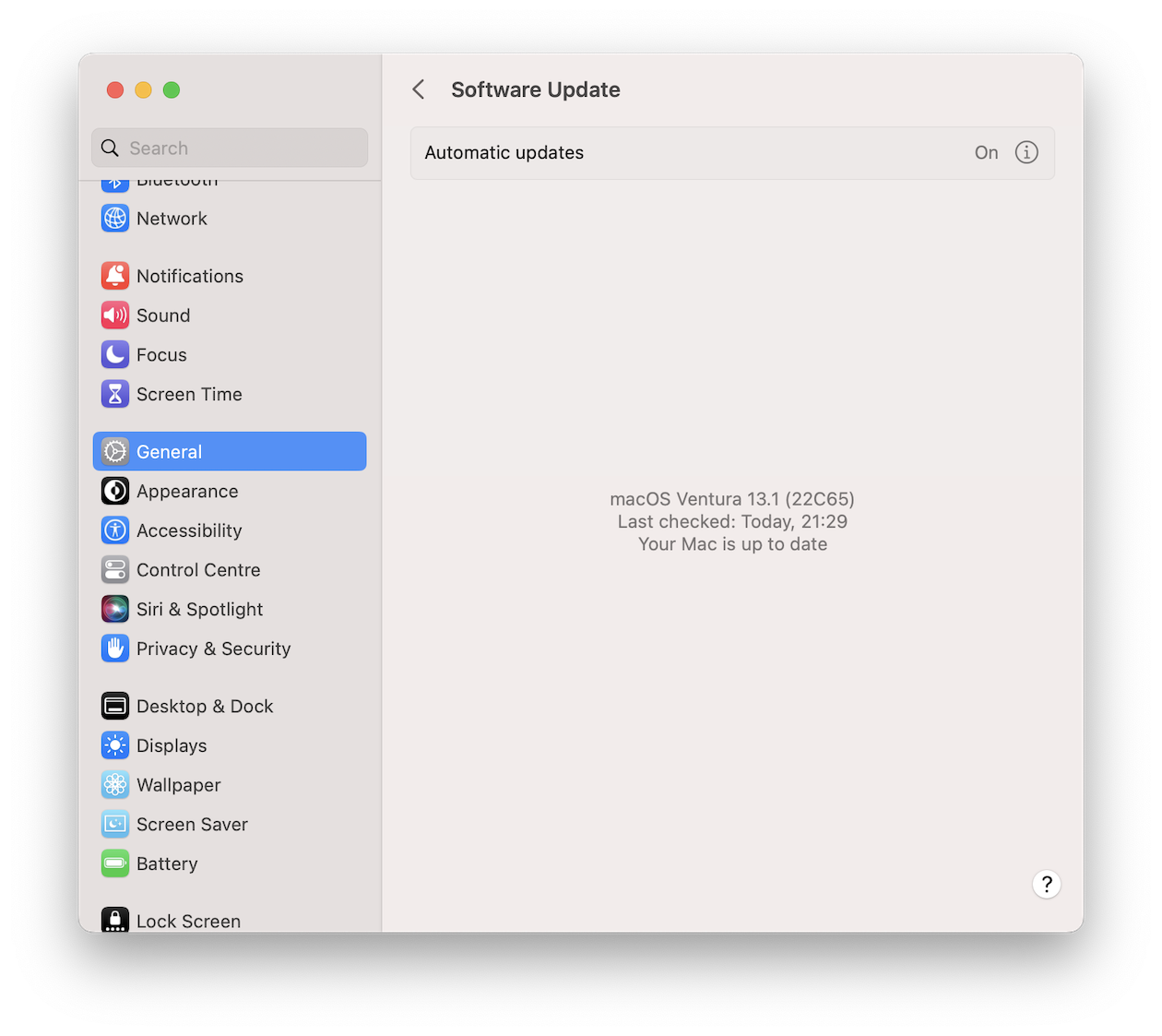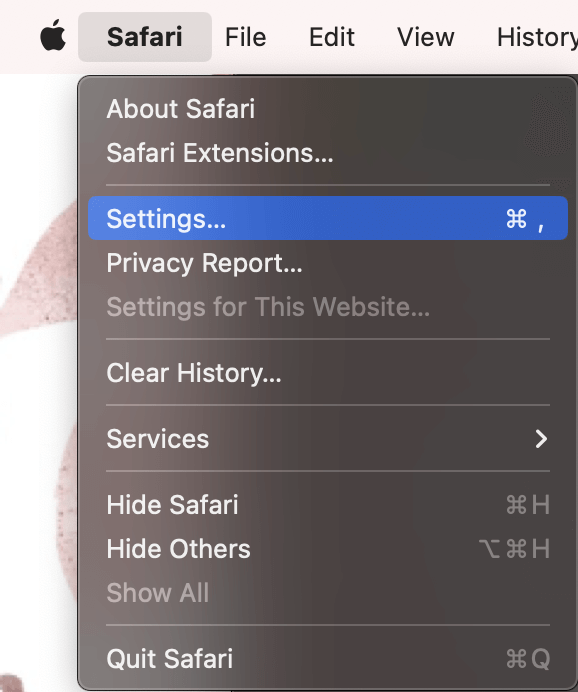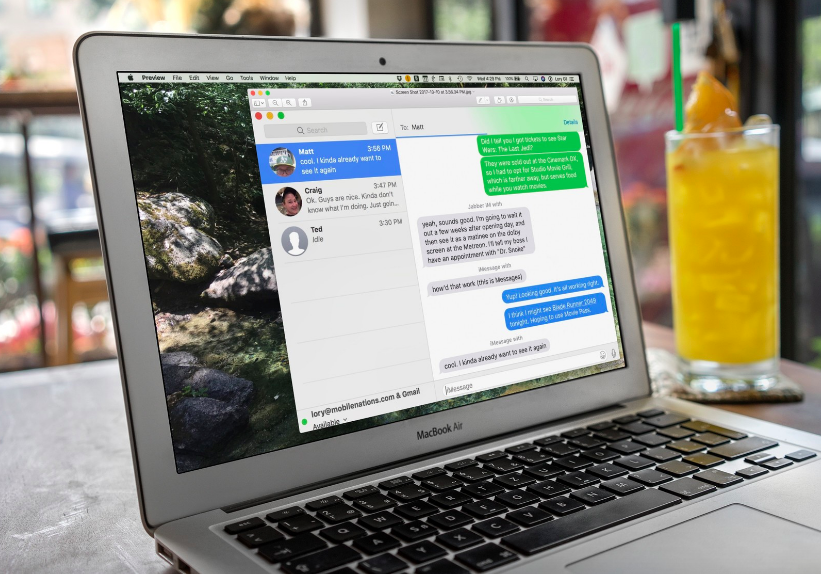Let’s face it, folks: remote IoT device login on Mac not working can be a real headache. In today's hyper-connected world, we rely on these devices for everything from home automation to industrial monitoring. But what happens when your Mac refuses to cooperate? It’s like trying to start your car on a freezing winter morning – frustrating, right? Well, don’t worry. You’re in the right place. This article will walk you through every step to fix this issue and get your IoT setup back on track.
Now, before we dive into the nitty-gritty, let’s take a moment to understand why this problem might occur. It could be anything from a simple network glitch to a deeper configuration issue. But hey, don’t panic just yet. We’ve got you covered with some easy-to-follow solutions that even the least tech-savvy among us can handle.
Whether you’re a seasoned IT pro or just someone who accidentally clicked "yes" to too many software updates, this guide is here to help. So grab your favorite caffeinated beverage, sit back, and let’s get started. Your IoT devices are waiting for you!
Read also:Unleashing The Chaos Wildfires And Power Outages Across Arkansas
Here’s a quick rundown of what we’ll cover:
- Understanding the problem and common causes
- Step-by-step troubleshooting tips
- Advanced solutions for persistent issues
- Best practices to prevent future problems
Table of Contents
- Understanding the Remote IoT Device Login Issue
- Common Causes of Remote IoT Device Login Not Working
- Basic Troubleshooting Steps
- Network Issues and How to Fix Them
- Dealing with Software Conflicts
- Mac Security Settings and Their Impact
- Advanced Solutions for Persistent Problems
- Best Practices for Future Prevention
- Recommended Tools for Troubleshooting
- Conclusion: Stay Connected and Stay Calm
Understanding the Remote IoT Device Login Issue
Alright, let’s break it down. When your remote IoT device login on Mac isn’t working, it means there’s a breakdown in communication between your Mac and the IoT device. This could stem from several factors, including network issues, software glitches, or even hardware malfunctions. But hey, don’t sweat it – most of the time, the fix is simpler than you think.
For example, have you ever tried restarting your router? Yeah, it sounds basic, but trust me, it works more often than you’d expect. Sometimes, all your system needs is a little reset to get things back on track. Think of it like a digital coffee break for your devices.
Now, let’s take a closer look at what might be causing the issue. Understanding the root cause is the first step toward solving the problem. And that’s exactly what we’re gonna do next.
Common Causes of Remote IoT Device Login Not Working
So, what’s really going on here? There are a few common culprits behind this pesky issue. Let’s dive into the top reasons why your remote IoT device login might not be working:
- Network Connectivity Issues: Is your Wi-Fi playing hide-and-seek? A weak or unstable connection can disrupt the communication between your Mac and the IoT device.
- Software Conflicts: Sometimes, outdated or conflicting software can interfere with the login process. Think of it like two apps fighting over the same space – chaos ensues.
- Security Settings: Your Mac’s security settings might be blocking the connection. While this is great for protecting your data, it can also cause headaches when you’re trying to access your IoT devices.
- Hardware Malfunctions: Let’s not forget the physical side of things. If the IoT device itself is acting up, no amount of troubleshooting on your Mac will fix it.
Now that we’ve identified the potential causes, it’s time to roll up our sleeves and start fixing the problem.
Read also:Chris Motionless The Ultimate Guide To His Life Career And Legacy
Basic Troubleshooting Steps
Before we dive into the deep end, let’s try some basic troubleshooting steps. These are the low-hanging fruits that can often resolve the issue without much hassle.
Restart Your Devices
Yes, we’re starting with the obvious one. Restart your Mac, your router, and the IoT device. This simple step can work wonders. Think of it like hitting the reset button on your entire setup.
Check Network Connectivity
Make sure your Mac is connected to the same network as your IoT device. If you’re using Wi-Fi, try switching to Ethernet to see if that resolves the issue. And hey, if you’re feeling adventurous, try resetting your network settings on your Mac.
Update Firmware and Drivers
Outdated firmware or drivers can cause all sorts of problems. Head over to the manufacturer’s website and check for any available updates. Trust me, this can save you a lot of headaches down the line.
Still having trouble? Let’s dig a little deeper.
Network Issues and How to Fix Them
Network issues are one of the most common reasons why your remote IoT device login on Mac isn’t working. But don’t worry, we’ve got some tricks up our sleeve to help you tackle these problems.
Check Your IP Configuration
Make sure your Mac and IoT device are on the same subnet. If they’re not, you’ll need to adjust the IP settings. This might sound complicated, but it’s actually pretty straightforward. Just head over to your network settings and make the necessary changes.
Disable Firewalls Temporarily
Firewalls can sometimes block the connection between your Mac and the IoT device. Try disabling them temporarily to see if that resolves the issue. If it does, you’ll need to configure your firewall settings to allow the connection.
Use a Network Diagnostic Tool
There are plenty of great tools out there that can help you diagnose network issues. These tools can pinpoint the exact problem and even suggest solutions. It’s like having a digital detective on your side.
Feeling more confident yet? Let’s move on to the next set of challenges.
Dealing with Software Conflicts
Software conflicts can be a real pain in the neck. But fear not, there are ways to deal with them. Here’s what you can do:
Uninstall Unnecessary Apps
Do you have a bunch of apps running in the background that you don’t really need? Uninstall them. These apps can hog resources and cause conflicts with your IoT software.
Check for Malware
Malware can wreak havoc on your system and disrupt the connection to your IoT devices. Run a thorough scan using a reputable antivirus program. Better safe than sorry, right?
Reinstall IoT Software
If all else fails, try reinstalling the IoT software on your Mac. This can often fix any corrupted files or settings that might be causing the problem.
Still not working? Let’s take it up a notch.
Mac Security Settings and Their Impact
Your Mac’s security settings are there to protect you, but they can also get in the way of your IoT device login. Here’s how to adjust them:
Allow Third-Party Apps
By default, macOS only allows apps from the App Store. If your IoT software isn’t from the App Store, you’ll need to adjust the security settings to allow it. Just go to System Preferences > Security & Privacy and make the necessary changes.
Disable Gatekeeper Temporarily
Gatekeeper is a great feature, but it can sometimes block legitimate apps. Try disabling it temporarily to see if that resolves the issue. If it does, you’ll need to configure it to allow your IoT software.
Check Firewall Rules
Make sure your firewall rules are configured correctly. You might need to add an exception for your IoT software to allow it to communicate with the device.
Feeling like a pro yet? Let’s tackle the big stuff.
Advanced Solutions for Persistent Problems
If none of the above solutions have worked, it’s time to bring out the big guns. Here are some advanced solutions to consider:
Reset NVRAM and SMC
Resetting your Mac’s NVRAM and SMC can resolve a wide range of issues. This might sound intimidating, but it’s actually quite simple. Just follow the steps in Apple’s official guide.
Use Terminal Commands
Terminal commands can be a powerful tool for troubleshooting. For example, you can use the `ping` command to check the connection between your Mac and the IoT device. Or, you can use the `netstat` command to view active network connections.
Seek Professional Help
Still stuck? It might be time to call in the experts. Whether it’s a local IT professional or the manufacturer’s support team, don’t hesitate to reach out for help. Sometimes, a fresh set of eyes can make all the difference.
Now that we’ve covered the advanced solutions, let’s talk about how to prevent these issues in the future.
Best Practices for Future Prevention
Prevention is always better than cure. Here are some best practices to help you avoid remote IoT device login issues in the future:
- Regularly update your software and firmware
- Monitor your network for any unusual activity
- Backup your data regularly
- Keep your security settings up to date
By following these best practices, you’ll be well on your way to a trouble-free IoT experience.
Recommended Tools for Troubleshooting
Here are a few tools that can help you troubleshoot remote IoT device login issues:
- Wireshark: A powerful network protocol analyzer
- ping: A simple command-line tool for checking network connectivity
- traceroute: A tool for diagnosing network routing issues
These tools can save you a ton of time and frustration when troubleshooting. So, don’t hesitate to add them to your toolkit.
Conclusion: Stay Connected and Stay Calm
Well, there you have it – the ultimate guide to fixing remote IoT device login issues on Mac. From basic troubleshooting steps to advanced solutions, we’ve covered everything you need to know. Remember, staying calm and methodical is key. Don’t let a little hiccup derail your IoT setup.
So, what’s next? Leave a comment below and let us know what you think. Did this guide help you? Do you have any tips of your own? And don’t forget to share this article with your friends and colleagues. Together, we can make the world of IoT a little less frustrating and a lot more connected.
Until next time, stay connected and stay calm. Your IoT devices are waiting for you!


